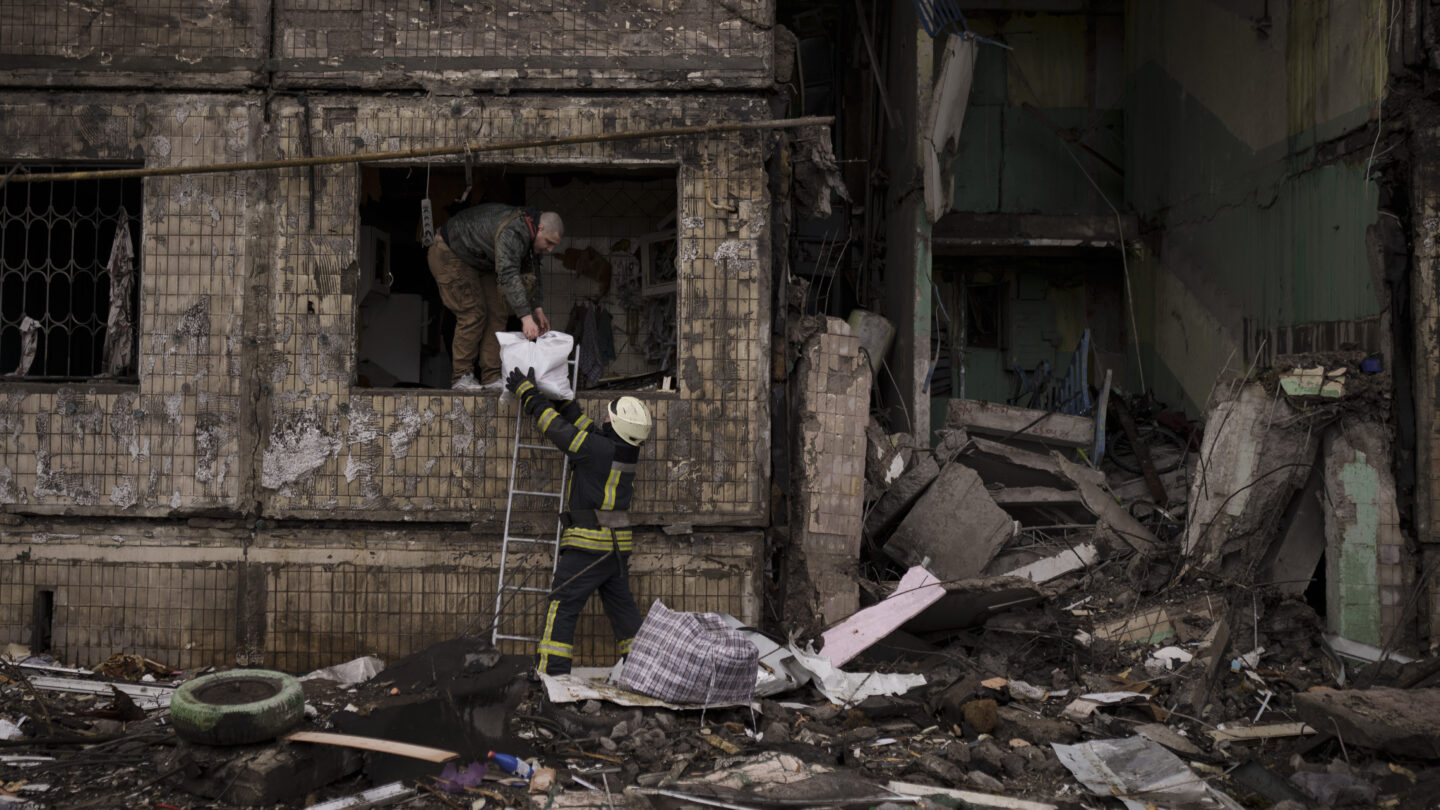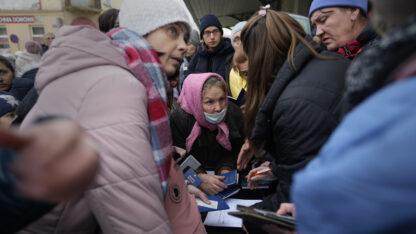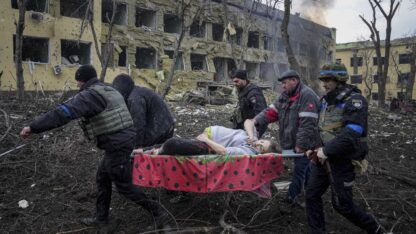Russia has cracked down on free speech and placed strict propaganda controls on what citizens see and hear about the brutal war in Ukraine.
Earlier this month, Russian President Vladimir Putin signed into law a rule that criminalizes reporting that contradicts the Russian government’s version of events. The law has forced many independent media outlets to leave the country, shut down — or face potential lengthy prison terms.
Julia Ioffe, reporter and founding partner of the media company Puck, joined “Morning Edition” to discuss how Russia is sanitizing the war to warp its citizens’ views. Listen here.
“[Russians] are being told that Russian soldiers are extremely decorous and careful about preserving Ukrainian civilian life, that they’re being greeted as liberators, that everybody wants to live under Russian rule, and that there are no civilian casualties on the Ukrainian side,” reports Ioffe.
State media doesn’t use the words “war” or “invasion,” and doesn’t mention Russia’s bombing of Kyiv.
The Kremlin has weaponized social media as well, hiring trolls to spread disinformation about the war and stir up fights online, says Ioffe.
Some Russians are turning to alternative sources for the truth and to break through propaganda. Some use VPNs — or virtual private networks — to mask their locations to access blocked sites like Twitter, Facebook and media organizations that report independently from the Kremlin, says Ioffe. Demand for VPNs shot up by more than 2,000% on Sunday, the day before the Putin regime shut off access to Instagram.
“But you have to understand that to go and do this, you already have to be looking. It’s people who already don’t believe what the Kremlin information sources are telling them,” says Ioffe. “They know that this is a war against Ukrainian civilians.”
All of this means the truth about the war is hard to find, and mostly is discovered by people who already distrust the Kremlin and its state-sponsored media.
“People who are not looking for this information are generally people who don’t care, or people who trust Kremlin sources of information. And if they trust those sources of information, then they believe, for the most part, what the Kremlin is telling them, and for the most part, they support this war,” Ioffe says.
“But the war they’re supporting is not the war that exists on the ground in Ukraine.”
This story originally appeared on the Morning Edition live blog.
Copyright 2022 NPR. To see more, visit https://www.npr.org.
9(MDAxODM0MDY4MDEyMTY4NDA3MzI3YjkzMw004))

9(MDAxODM0MDY4MDEyMTY4NDA3MzI3YjkzMw004))








